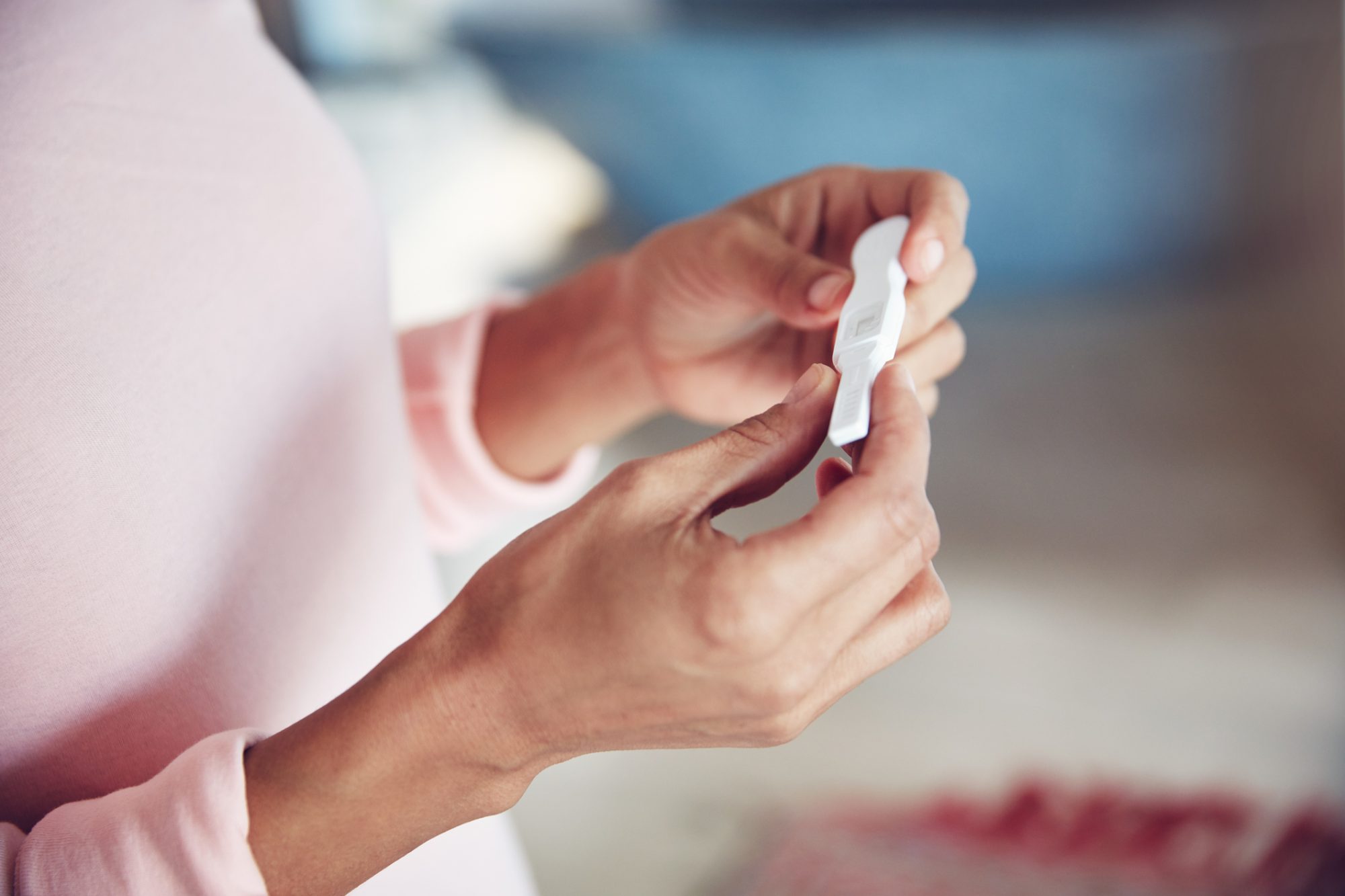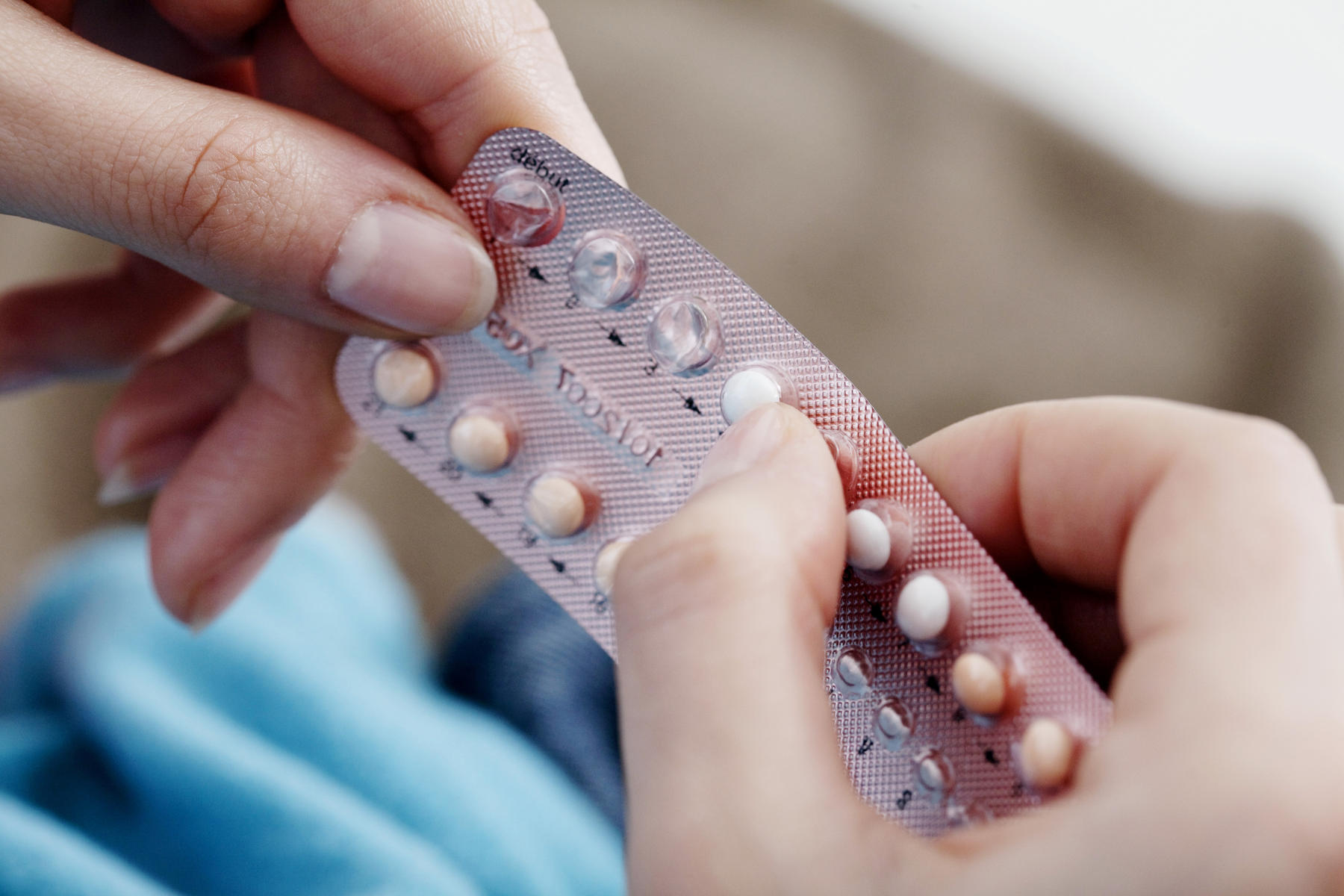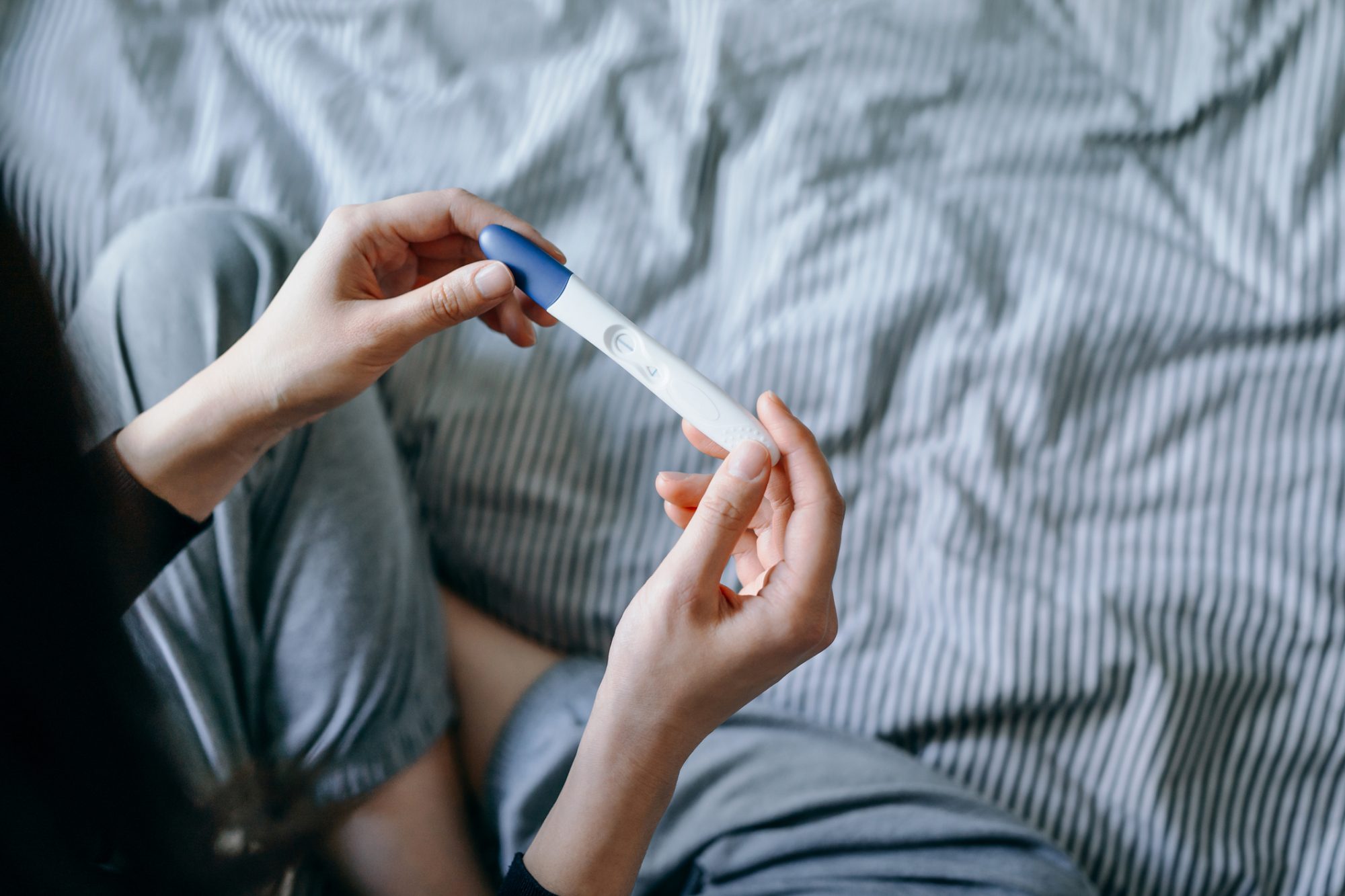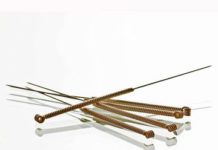Pre-ejaculate (aka precum) can be an elusive and confusing term. But for women looking to start families (or avoid getting pregnant), it's important to know the facts. Fact number one? While the risks are much lower due to sperm count, it is still very much possible to get pregnant from precum.
"It's estimated that about 20 percent of women can get pregnant from withdrawal method during sex, so it's possible those women got pregnant from pre-ejaculate," says Mike Hsieh, M.D., urologist and director of Men's Health Center at UC San Diego Health. According to the Centers for Disease Control and Prevention (CDC), the chance of conceiving from precum is actually more like 22 percent if you're using the withdrawal method.
Whether withdrawal is your main birth control method or it's a method you occasionally rely on, here's what you need to know about sperm, precum, and semen when it comes to your chances of getting pregnant.
What Is Precum, Exactly?
"Pre-ejaculate fluid (precum) is a normal part of physiology for lubrication produced by glands of the penis to facilitate sexual intercourse," says Dr. Hsieh. "The penile glands producing the pre-ejaculate fluids do not produce sperm (sperm is made from the testicles), and it is believed that sperm found in the pre-ejaculate fluids are residual sperm inside the urethra from prior ejaculations."
This fluid is mostly made up of mucus, proteins, and enzymes meant to balance its pH, and make a man's urethra less acidic as to give sperm a better chance of surviving in the super acidic vagina.
And according to Mitchell Creinin, M.D., gynecologist and director of family planning at UC Davis Health, precum involuntarily comes out before a man physically feels an orgasm and ejaculates. "Precum is really just the beginning of the ejaculate—there is no 'pre'," says Dr. Creinin.
Is There Sperm in Precum?
The precum fluid itself does not contain sperm, but sperm can leak into it as it travels down the urethra, where residuals may be present from previous ejaculations, and can be released with precum prior to semen. (FYI, semen contains sperm and is the ejaculate that is emitted during orgasm.) "Normal semen fluid from ejaculation contains greater than 40 million motile sperms compared to pre-ejaculate fluid, which has anywhere from no sperm to less than 5 million swimmers," says Dr. Hsieh.
One 2013 study done on sperm counts of precum in 27 men found that 41 percent of the men had sperm in their precum, 37 percent which was motile (healthy) sperm, while a similar 2016 study on sperm count in precum found healthy sperm in about 17 percent of men.
Can You Increase Effectiveness of the Withdrawal Method?
Basically, the withdrawal method is not iron-clad. "The advice I try to give couples is that if you're seriously using withdrawal, you have to be comfortable as a couple with idea of fully finishing sex (since precum does contain sperm)," says Dr. Creinin. "If you are going to enter the vagina without any protection, you should withdraw long before finishing and being really stimulated. Pulling out before the brink of orgasm does not protect you."
That means you should be putting a condom on once the penis is erect, before skin-to-skin contact.
Is There Any Way to Prevent or Avoid Pre-Ejaculate?
Unfortunately, there is no way to stop precum, and the amount is determined by many factors. "The amount of pre-ejaculate fluid can vary depending on a man's arousal level, hormonal status, hydration level, and medications," says Dr. Hsieh. "The only way to avoid [precum] is through a barrier [ex. condom]. People thought if a man urinates prior to sex, it can wash out the sperm from urethra, but this is unproven."
However, if you choose to use the pull-out method, using another birth control method—like spermicidal lube—can help reduce the risk of pregnancy, but it relies on proper use. "Anything is more effective than withdrawal alone," says Dr. Creinin. "If you're putting contraceptive (spermicidal) gel in the vagina combined with withdrawal, you must follow the directions." According to the CDC, spermicide is only 28 percent effective.
The Bottom Line
"Pre-ejaculate is still ejaculate—there's sperm in there," says Dr. Creinin. "The word 'pre' has got to go away." If you're looking for ways to lower your chances of becoming pregnant due to precum, according to Dr. Hsieh, "Condoms are still the most reliable way."
-

Can the ‘Carnivore Diet’ Actually Help You Get Pregnant?
-

11 Things To Never Tell Someone Who’s Having Trouble Getting Pregnant
-

Can Birth Control Pills Cause Infertility?
-

Does Melatonin Affect Fertility?
































